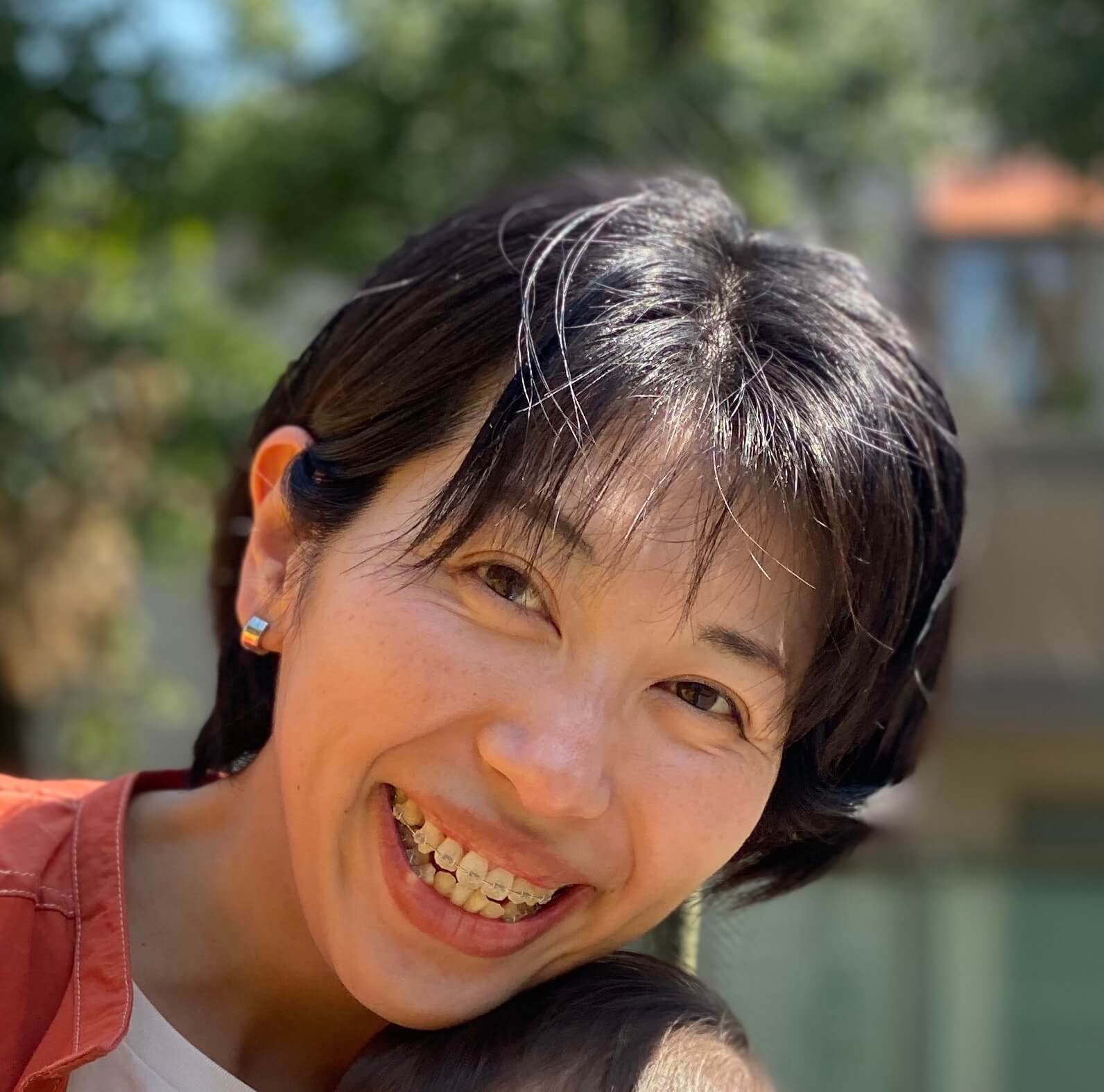Updated June 27, 2024
“The Alchemist”: Interview with Angelica Wang
Introduction
Angelica Wang, currently the Customer Success Manager at Japan Dev, recently shared her experience moving from the U.S. to Aomori Prefecture. Reflecting on her journey, Angelica discussed how her upbringing sparked her curiosity about language and thought. She shared insights about balancing work and personal interests while living in rural Japan. Angelica’s love for nature and the connection she has to it offers insight for anyone looking to find a balance between work and their passions in Japan.
In this article: 📝
Key Takeaways
Living in a foreign country can entail some sacrifices, but it can also lead to personal growth and self-discovery.
Moving to Japan, if you’ve studied Japanese in school, can open up new spaces to explore other interests and passions.
Living in the countryside can impact the job search but by working on identifying your strengths and believing in yourself, the transition is possible.
Choosing Japanese as a Starting Point
Eri: Please tell me about your background.
Angelica: I’m Chinese American and grew up in Oregon in the U.S. I’ve always been around different cultures even as a child and I was sent to Chinese School and spoke Chinese at home. I didn’t have a choice in going to Chinese School, so for some time I took that environment for granted, but I always knew I enjoyed learning languages.
In high school, I studied Japanese for 3 years. I decided on Japanese because at the time, I just thought it was another Asian language, like Chinese. (laughs) but Japanese was so hard! I still feel like I struggle with it. I also found it interesting how Japanese culture is still well-kept compared to China, which was impacted by the Cultural Revolution. This fascination led me to major in Japanese in University and study abroad in Osaka. After I graduated, I worked a little bit but I wanted to come back so I applied and got accepted to the JET Program. I was sent to Aomori Prefecture, in the northern part of the country. This is where I am living today.
Eri: If you took a step back and looked at the entire journey till now as a book, what would be the title of your book?
Angelica: I thought about this question before coming to the interview, actually. My answer is “The Alchemist” and this is a book written by Paulo Coelho. I really resonate with the book. It’s about a young man’s journey as he’s traveling somewhere, I believe in Spain. Through the process of traveling to different places and meeting people he gains new experiences and he’s able to figure out what his real treasure is. I think we’re all on this journey of life. The more I gain these different experiences and the more I’m able to reflect on my values to understand what is important to me, the closer I’ll get to my true North Star.
Eri: What parts of the book relate to your journey?
Angelica: There is a part where the protagonist meets his love interest while visiting a foreign country. He tells her, “I have to continue on my journey. I have to keep going. Would you be willing to wait for me?” For me, this is about people I really care about like family. Living in a foreign country is hard because you’re away from your family, friends, and people you grew up with. I’m grateful that they understand that this is my adventure and journey. I’ve felt their support throughout the way and at times they even encouraged me to follow my path.
I think it comes down to the idea that there are sacrifices you have to make in life, but it all comes full circle eventually.
Sacrifices and Seeking Clarity
Eri: What experiences lead you to this idea?
Angelica: To go back to how I got to Japan through the JET Program, I was hired as the CIR or the Coordinator for International Relations, which involved doing a lot of translation and interpretation work at the local City Hall. My intention was to stay in Japan for about 2 years at most. This is my 6th year here. Halfway through the program, I met my husband. After we started dating and I switched jobs and in between this transition I also got married.
A part of me still struggles with the fact that I don’t know if I’m going to ever go back to the U.S. because a lot of my life is here now, which is why I mentioned the sacrifice. I may have sacrificed going back to family and friends, or even work opportunities in a bigger city. At the same time, I did gain a lot. It’s a give and take.
Eri: Did the decision to get married at this point in your journey in Japan give a sense of permanence?
Angelica: I was hesitant to get married at first because I felt like I had to make a very important decision to stay in Japan forever or not. Looking back, I realize decisions aren't always black and white. My husband also helped with bringing a different perspective. He’s an optimist so he said let’s do it now and worry about the details as it comes up later, so he’s helped me through that process.
Eri: What are some of the experiences that impacted you to take your Japanese language learning to the next level where you eventually came to live here?
Angelica: I never really had many interests that helped me know what job to choose when I was a student. For example, I have a lot of friends who are engineers and they already knew what path they were going to choose early on. So when I stumbled upon learning Japanese, it was like a gateway to experiencing the world. Learning the language helps you to see how people think in that culture. From that starting point, I began to really want to go and see for myself.
When I finally went to Osaka to study, this was when different interests blossomed. I met a lot of people from different countries which broadened my world view. When I think back I enjoyed traveling and experiencing things even as a younger kid. My parents and I would go to China to visit their relatives. I just never thought it was something I could do for myself. By studying Japanese, it opened us so many opportunities to try out. I could say I got addicted to the rush of experiencing new things.
Exploring Nature and Design in the Job
Eri: How did you transition into the job after the JET Program?
Angelica: COVID hit about 2.5 years into my job in the JET Program. I knew many people moved from the countryside to the city very often for work but because of the pandemic, I didn’t feel like it was the best moment to move to a larger city. I had always wanted to do something with design and art. So when someone introduced me to the main designer at a local landscaping company and said they were willing to train me on the job, it all worked out.
The designer looked at the photos I had taken and thought I had a good eye for design. It was a good opportunity. I knew I wanted to learn design at some point and I’m really into nature so this was a perfect balance between my interests and what I wanted to work towards.
Eri: By being in Japan did this open a new space to explore design as your interests or was it something you had already known even before learning Japanese?
Angelica: I actually hadn’t noticed that but you’re right. After I came to Japan, I stopped studying Japanese through textbooks which gave me a lot of space to explore different things I was interested in. Design was actually something I became interested in while I was studying in Osaka through meeting friends who introduced me to things like urban design and photography.
I’d walk around Tokyo, for example and see these really narrow pieces of land with a triangular building on the side of a road and found it fascinating. I did contemplate pursuing design at some point during College but my interest was in coming to Japan.
So it was a great convergence when this opportunity to work in the landscaping company came because it covered many things I like, like nature and design.
Finding Japan Dev and a Balanced Lifestyle
Eri: So what happened from there?
Angelica: I faced some challenges adapting to the work culture there. The nature of working in the countryside in a smaller company is really different from working in a big company in a bigger city. I realized although I liked design, I can still do things on the side that were related to it. My priority in my job switched to more flexibility and freedom.
This was what led me to work at Japan Dev, where I am currently working at. I greatly appreciate my role because our service is introducing jobs we know foreigners will be satisfied with. I value Japan Dev's work because I knew firsthand how hard it was to find a job.
Eri: Your insight on how what you’re passionate about doesn’t have to be at work is very profound. It sounds like since you’ve moved to Japan, you’ve gotten closer to living in a way where you feel accepted for who you are.
Angelica: I read your article on imagining the lifestyle you want and working towards it. I had never thought about life or career from that overall perspective of lifestyle. By imagining a lifestyle I wanted to have, I was then able to choose a path I was happiest taking. Ultimately, you live your own life. Only you know if you’re happy or not.
Eri: What helped with landing this role?
Angelica: I have experience working in a small company and I knew Japan Dev is still a small startup so I was able to look at what the company needed and match my own skills and experiences. I also had experience taking on different projects and multitasking so a lot of this helped. I also went out and made a portfolio of my photography to give a good idea of what kind of person I am and what I can bring holistically. I really enjoyed the process of putting myself in the position and thinking about the value that I could bring there.
The biggest takeaway is to trust yourself through the process. I got discouraged halfway through my job search because I would keep seeing job descriptions where I didn’t fulfill 100% of the requirements. At one point I told myself I just have to apply. I listened to and immersed myself in a lot of content on building confidence and gave myself a pep talk every morning to go out and do it. Sometimes I just wanted someone to do it for me but I knew I had to do it myself.
Eri: What are your current and future plans?
Angelica: I want to develop the creative side of my interests, outside of work. My husband and I recently moved to a bigger house with a plot of land so I want to get into gardening a lot more. There’s a lot to offer in the country, especially things that people in the city may not have. I’m grateful we can drive for 20 minutes or so to get to a beach or the mountains. I’m excited to take advantage of these opportunities I have to be in nature.
Conclusion
When I listened to Angelica describe her home in Aomori, exploring nature with her husband and growing roots there, it was clear her lifestyle offered many aspects I missed in Tokyo. The innate human drive to look for greener pastures reflects our continuous search for belonging and peace. Angelica’s experiences highlight the value of creating space for our passions, whether at work or elsewhere. Her transitions illustrate how there’s never just one path that defines a career.
Get Job Alerts
Sign up for our newsletter to get hand-picked tech jobs in Japan – straight to your inbox.







